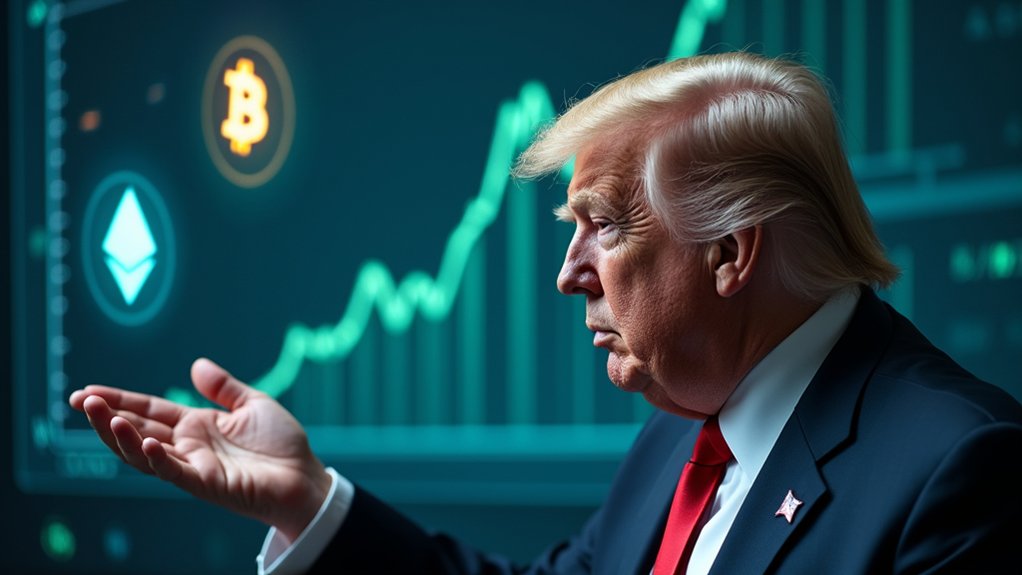While the GENIUS Act had once seemed destined for passage with its initial bipartisan support, a dramatic reversal by nine Senate Democrats has effectively derailed what many considered the cornerstone of Trump’s crypto agenda.
Bipartisan promise crumbles as Democratic reversal sinks Trump’s flagship crypto legislation into political quicksand.
The bill, which advanced from the Senate Banking Committee in March 2025 with cross-aisle backing, now finds itself ensnared in a web of partisan maneuvering that has left industry observers bewildered by Washington’s capricious political winds.
At the heart of this legislative soap opera lies Trump’s increasingly visible crypto entanglements—from his memecoin dinner invitation to Abu Dhabi’s MGX plans to utilize World Liberty Financial’s USD1 stablecoin for Binance investments.
Democratic leadership has seized upon these connections, with Senator Schumer warning his caucus during a closed-door session about potential Trump family windfall profits (“hundreds of millions,” according to hushed corridor conversations).
The reversal compounds regulatory uncertainty for an industry already traversing treacherous waters. The announcement made Saturday evening represents weeks of behind-the-scenes negotiations among Senate Democrats who fear potential conflicts of interest.
Stablecoin issuers, institutional investors, and blockchain payment innovators must now contend with continued ambiguity while overseas competitors forge ahead with clearer frameworks.
Galaxy Digital’s assessment—that this represents a cascading setback for 2025’s entire crypto legislative agenda—seems increasingly prescient.
The setback particularly impacts new entries like RLUSD, which aims to leverage instant settlement capabilities for cross-border transactions while maintaining complete reserve backing.
Senator Ruben Gallego (D-Ariz.) has emerged as the resistance’s standard-bearer, joined by Warner, Brown, and Cortez Masto among others.
Their objections focus on recent Republican revisions that allegedly prioritize private issuers over consumer protections and financial stability.
The bill now lacks the necessary 60 votes to overcome a filibuster—an insurmountable mathematical reality.
The impasse sets the stage for protracted negotiations that will likely push any meaningful legislation well past Republicans’ preferred pre-May timeline.
House-passed provisions await Senate reconciliation that may never materialize, leaving the administration’s first major crypto initiative in legislative purgatory.
This high-stakes standoff portends broader implications for 2026 midterms, where crypto policy—once a bipartisan bright spot in an otherwise polarized landscape—has devolved into yet another partisan battlefield.
The financial future, it seems, remains hostage to political theater.









